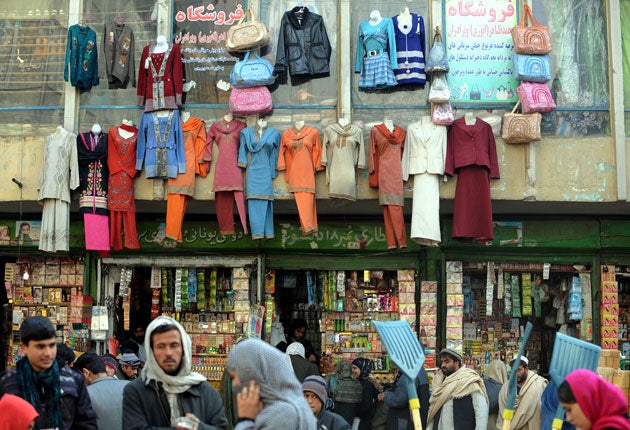Taliban target more civilians to counter US surge

Your support helps us to tell the story
From reproductive rights to climate change to Big Tech, The Independent is on the ground when the story is developing. Whether it's investigating the financials of Elon Musk's pro-Trump PAC or producing our latest documentary, 'The A Word', which shines a light on the American women fighting for reproductive rights, we know how important it is to parse out the facts from the messaging.
At such a critical moment in US history, we need reporters on the ground. Your donation allows us to keep sending journalists to speak to both sides of the story.
The Independent is trusted by Americans across the entire political spectrum. And unlike many other quality news outlets, we choose not to lock Americans out of our reporting and analysis with paywalls. We believe quality journalism should be available to everyone, paid for by those who can afford it.
Your support makes all the difference.Afghan civilians will be targeted by the Taliban over the coming months, with fighting set to escalate, in an attempt to counter US claims that security is improving in parts of the country.
Research revealed that there has been a 40 per cent rise in suicide attacks since the start of this year, with worse expected to come as part of an accelerated spring offensive to be launched by the insurgents in the coming months.
The analysis, by the risk consultants Exclusive Analysis, explains that the focus on civilian targets is the imperative for the Taliban, which aims to discredit claims by General David Petraeus, the US commander of the International Security Assistance Force in Afghanistan (Isaf), that areas have become safer following the US troop surge.
The research cautions: "Civilian soft targets, such as shopping malls, restaurants and markets, as well as government buildings, will face significant risks of attack."
Taliban leaders are under pressure to stage retaliatory attacks in response to an increasing number of raids targeting key insurgents. According to the analysis, senior Taliban figures met in Quetta, Pakistan, in February, and authorised an increase in attacks to refute Isaf claims that a negotiated settlement to the war could be reached.
It concludes: "Militant attacks are likely to increase as the Taliban leadership and many mid-level commanders believe that they are winning the war."
The warning comes in the wake of the attack on the UN mission in Mazar-i-Sharif in which seven UN workers were killed.
Join our commenting forum
Join thought-provoking conversations, follow other Independent readers and see their replies
Comments